Da Barn, based in Hillswick, Northmavine, is a popular horticulture and market garden, selling a wide range of bedding plants, Perennials, vegetable plants, and produce suitable for the Shetland climate – including Livingstone Daisies, wild cherry, primrose, lupins, geraniums, poppies, and many more. The majority of plants are grown from seed on site. Growing Local Northmavine went to have a chat with Carol Titcomb – co-owner of Da Barn – about her life experiences of growing plants, and the development of her hobby into a successful business.
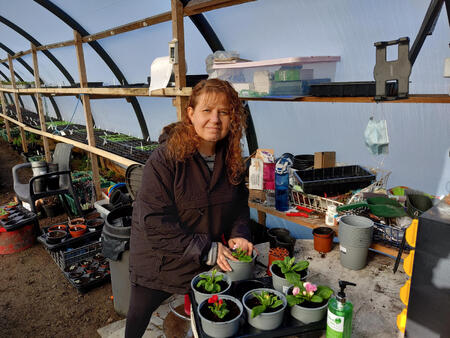
Early years of growing
Raised on a croft in nearby Upper Urafirth, Carol says that she doesn’t remember a time when she didn’t grow vegetables and flowering plants. With informed guidance from her father, she was helping to grow a range of vegetables in their yard from an early age – including tatties, carrots, neeps and kale.
“I enjoyed growing then, and I still enjoy growing now”, says Carol. “It was always about just ‘giving it a go’ and accepting that with growing, sometimes you get good years and sometimes not so good years”.
In the mid-nineties, Carol and her partner, James, moved to their croft in Swarthoull, where Carol was able to continue growing vegetables and flowering plants. Given her passion for growing – along with having the space and potential shelter to grow there, she had her first thoughts of how she might look to turn this hobby into something more.
Development of Da Barn
Fast forward several years to 2016 when Carol and James’ bairns were grown up, this ambition became a reality when they started ‘Da Barn’, a horticulture and market garden. Their business became operational after starting off with one polytunnel that summer, followed by two more tunnels in 2017.
Whilst polytunnels made the most economic sense for the business, the ferocity of the Shetland winter gales was a concern. Fortunately, however, they were able to erect the polytunnels directly behind their croft’s barn, which protected the tunnels by providing good shelter from the strong northerly winds. Therefore, given the barn’s importance to the sustenance of the business’s polytunnels, their horticultural business was consequently named ‘Da Barn’.
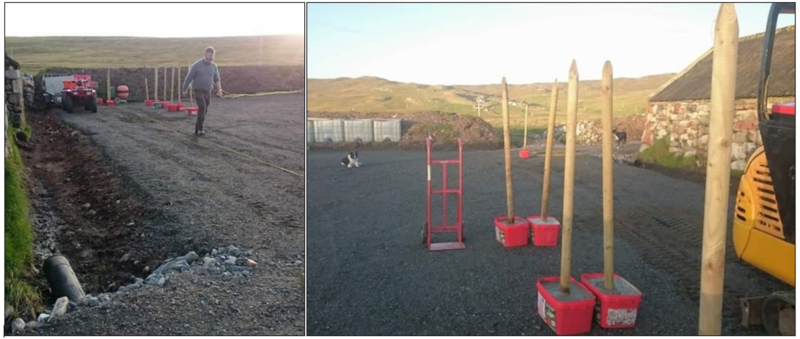
Having established their initial plans to put up three tunnels, they also added in additional infrastructure to some of the tunnels, such as developing the old croft water supply, and adding both aquaponic and hydroponic systems, much to the interest of visitors to the site – including groups of schoolchildren. In addition to this, one of the other interesting aspects of Da Barn’s market garden which was established from the beginning is that most plants are grown from seed or cuttings on site. When asked whether this was a unique selling point of Da Barn products, Carol responded “Yes, but we simply had never thought of doing it any other way”.
However, establishing a horticultural business on an island at 60 degrees north is not without its challenges – and therefore there was a need to adapt accordingly. For instance, with the growing season in Shetland being shorter than in other areas of the UK, this affects the types of plants which can be grown, and when they need to be planted. Carol says that it is therefore important to be pragmatic and allow the ability to adapt approaches to growing, such as being selective in terms of which plants grow best within the Shetland climate. Likewise, when their first tunnel didn’t survive the winter weather due to its soft ends, it was realised that hard ends would in fact be needed and so they adapted their tunnels to include this.
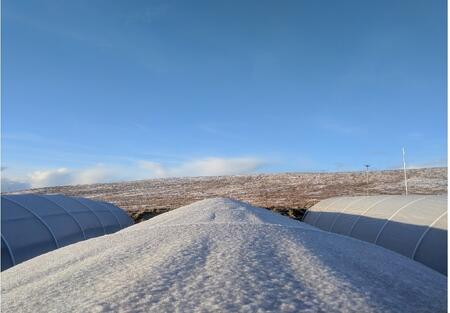
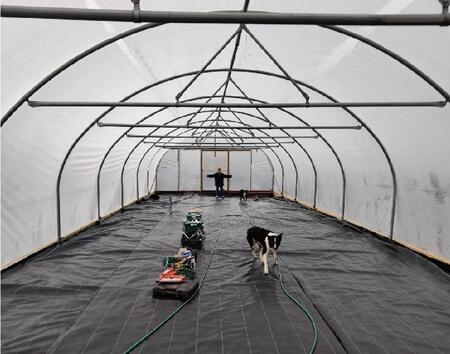
“It’s really been a case of ‘learning as you grow’ – along with plenty of patience and resilience”, Carol stated, acknowledging the similarity between these attributes and plants growing in the Shetland climate. “As such, Da Barn has been a big learning curve – both the business side of it and the growing”.
A bit of creativity appears to also have come in handy – notably from an environmentally conscious approach. For instance, Da Barn’s plant pots are reused, old polythene covers are available for reuse or repurposing, and soil and organic matter can go back into their compost batch. “We strive to be as environmentally friendly as possible – after all, horticulture and looking after the environment should always go hand in hand”.
Growing in Shetland over the years
Asked about her perceptions of growing within Shetland at the current time, Carol said that folk seemed to be getting more interested in growing again now.
“Whilst folk used to grow a lot in Shetland, there have been lots of social and economic changes which have limited people’s time and ability to grow for themselves or to sell within their community.”
However, Carol said it was good to see that more people seem to be growing again now as they become aware of how much tastier and higher quality local produce can be, the environmental impacts of buying produce from hundreds or thousands of miles away, and more interest in being self-sufficient, with less dependence on food resources sourced from elsewhere. “Given the benefits of growing all around, I hope Da Barn can have a positive influence on a broad range of growers”.
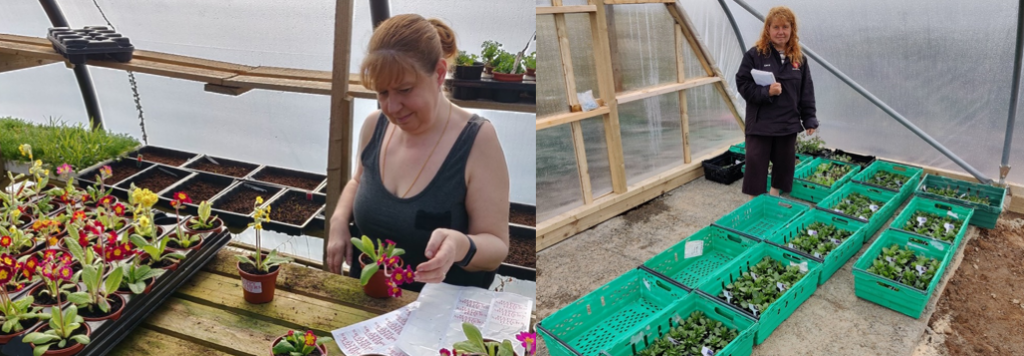
Asked if she had any advice for new growers, Carol said that she found growing to be a highly enjoyable activity where there is always something new to be learned.
“Folk shouldn’t be scared to have a go at growing. It can be intimidating for new growers when they see examples of perfect produce, such as on social media. The problem with this is that it can create the illusion that growers will be able to get such perfect looking produce year in, year out – which won’t be the case”.
“My advice, based on my own approach to growing is just give it a go, be prepared to learn from experience, adapt to grow what works for you, and don’t be disheartened by a poor year – there is always next year. Taking this approach will allow you to enjoy both growing and eating your own produce.”
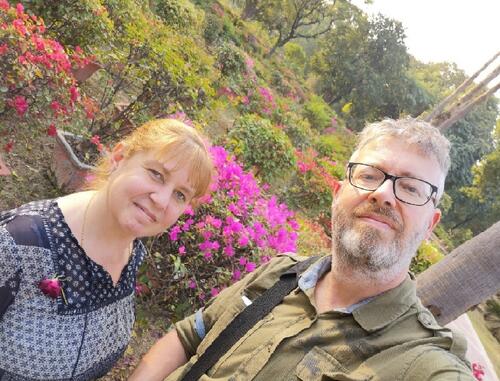
Da Barn Facebook Page: Da Barn | Facebook
Da Barn Website: Da Barn Webshop (square.site)
Carol Titcomb
